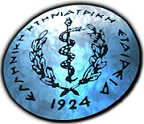Οι κοπροσωροί που συγκεντρώνονται στις κτηνοτροφικές και πτηνοτροφικές εκμεταλλεύσεις μπορεί να αποτελέσουν εστίες μετάδοσης παρασιτικών νοσημάτων και αιτία για την υποβάθμιση του περιβάλλοντος. Στην παρούσα εργασία παρουσιάζονταιοι διάφορες μέθοδοι διαχείρισης των κοπροσωρών που τις καθιστούν υγειονομικά και περιβαλλοντολογικά ασφαλείς. Επίπλέον, παρουσιάζεται το νομικό πλαίσιο σε εθνικό και ευρωπαϊκό επίπεδο που διέπει τη διαχείριση και διάθεση των κοπροσωρών.
(EL)
The farming of animals results in the production of considerable amounts of manure. According to the decision 96/103/EC of the European Community Commission "manure means any excrement and/or urine of cloven-hoofed animals, equidae and/or poultry, with or without litter". While manure was considered in the past as a valuable medium for fertilising farm lands, today it is considered mosdy as a waste. The reasons for this change of perception is the low cost of chemical fertilisers today and the intensification of livestock farming, where a large number of animals or poultry are raised in a limited space resulting in severe problems of manure management. The accumulation of manure in animal and poultry farms may be a source of transmissible infections and a reason for environmental degradation. For this reason, various methods have been developed that make animal manure hygienically and environmentally safe. In addition, a legal framework, governing the management and disposal of manure at the national and European level has been established. Pathogenic parasites that have been found in slurry of bovines are oocysts of Eimeria sp., eggs of Trichostrongyloidea, Strongyloides sp., Oesophagsotomum sp., Dictyocaulus sp., Trichuris sp., Dicrocoelium dendriticum, Moniezia sp., Fasciola sp., and Toxocara vitulomm. Pathogenic parasites that have been found in slurry of swine are oocysts of Eimeria sp., cysts of Balantidium coli and eggs of Ascaris sp., Oesophagostomum sp., Strongyloides sp., Hyostrongylus sp., Trichuris sp. and Fasciola sp.. Parasites that have been isolated in manure of poultry are Eimeria sp., Histomonas sp., Ascaridia sp., Heterakis sp. and Capillaria sp.. Generally, parasitic eggs are protected from environmental conditions by their shell, but very few of them can survive in slurry for more than 85 days. The parasitic diseases that are transmitted by manure to animals and poultry may be due to protozoa, such as coccidiosis and balantidiosis or helminths, such as ascariosis, ancylostomiosis and trichurosis. The pathogenic parasitic organisms found in manure have different levels of resistance to various environmental factors and their infectivity may persist from some days to weeks or even to many years. Therefore, it is not certain that the mere storage of manure will result in its sanitation. For this reason, various sanitation methods of manure are used. The aerobic digestion results in temperature elevation and sanitation of manure. The parasitic eggs and larvae are not inactivated at these temperatures, but the storage of manure for 2 months secures the inactivation of all parasites. During storage of liquid manure, the temperature that is developed is not high and for this reason the pathogenic organisms survive for a long time period. On the other hand, the presence of urine in liquid manure reduces the survival of pathogenic organisms due to the detrimental effect of pH. The higher the pH, the shorter their survival time is. Studies on the disinfecting activity of anaerobic digesters have shown that oocysts of Eimeria. tenella are inactivated19, while encysted larvae of Trichinella, spiralis are still infective after 16 days. The sanitation physical methods that have been used are high temperatures drying, electro-chemical methods, sound waves and ultraviolet or radioactive waves. Thermal processing (pasteurisation) at 70°C for 30-60 min. is used in some European countries, such as Germany and Switzerland for liquid manures used as fertiliser on grasslands during summer months. With this method the cysts of Entamoeba histolytica 50 °C after 5 min. and the eggs of Ascaris lumbricoides are destroyed at 50°C after 5 min. and at 55°C after 7 min. Satisfactory sanitation is achieved also by drying and radioactive radiation with Co60 at a dose of 0,3-0,4 Mrad. The advantages of sanitation with radiation are the constant quality of the result in contrast to the biological sanitation, which is not constant, the fewer breakdowns of the equipment in contrast to the thermal method, the simple operation of the installation and the lower energy demands compared to the thermal method. However, all these methods are still experimental and are not used in practice for the sanitation of manure. The legislation of 26-3-1936 stipulates that, in case of emergence of a disease of mandatory declaration, manures should be burned or disinfected with the use of a disinfectant, unless the nature of the disease mandates the use of a special disinfectant, following the decree of the veterinary administration of the perfecture (Article 17). The decision 96/103/EC of the European Communities governs the trade and import of manure in the country members of the E.U. Generally, the trade and import of unprocessed manure of species other than poultry or equidae is prohibited, apart from certain exceptions. The trade and import of unprocessed manure of equidae is not subject to any animal health condition. The trade and import of processed manure and processed manure products is allowed subject to certain hygienic restrictions. In none of the above cases parasites are a reason for hygienic restriction.
(EN)
